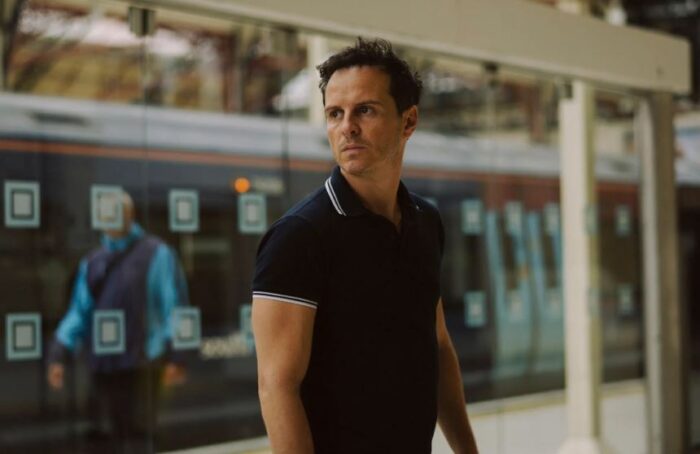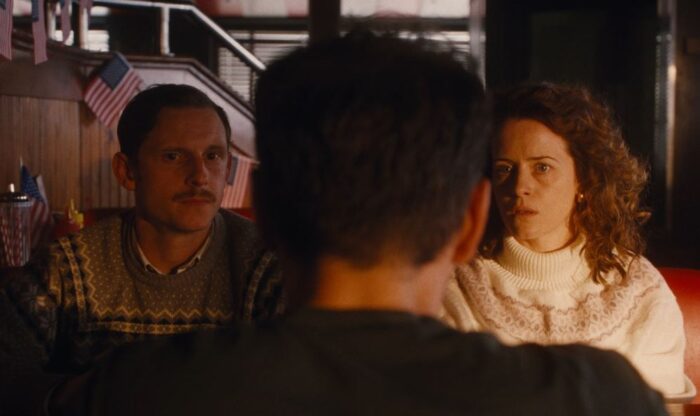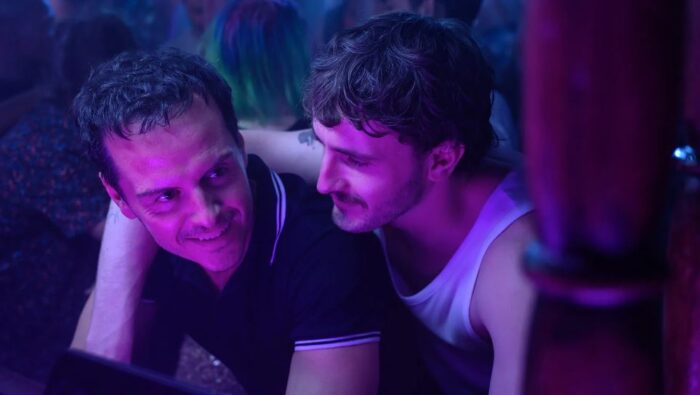
“You simply can’t go home again” is a quote from Thomas Wolfe’s 1940 novel of the same name that is just as poignant now as when it was written. I was reminded of this quote by a 1963 interview Rod Serling did with Binny Lum for Australian Radio.
In the interview, Serling discusses how The Twilight Zone can use imaginative storytelling to explore the idea of going back to another time, but how returning always brings with it a great sense of loss. I can think of no better word to describe Andrew Haigh’s All of Us Strangers than “loss.”
All of Us Strangers follows Adam (Andrew Scott), a solitary screenwriter living in a near-empty high-rise in London, who unexpectedly encounters his neighbor, Harry (Paul Mescal), leading to a romantic relationship. As Adam navigates this new connection, he is simultaneously drawn back to his childhood home, where he finds his long-deceased parents (Claire Foy and Jamie Bell) living as if no time has passed.
The film intertwines Adam’s present-day romance with Harry and his surreal reunions with his parents, creating a poignant exploration of love, memory, and a loss of innocence.
You can see how a story like this would feel at home in The Twilight Zone. In particular, the episode “Walking Distance,” where Martin (Gig Young), a fed-up advertising executive, drives back to his hometown only to realize he’s traveled back to the time of his childhood. He tries to recapture his youth but only ends up upsetting his past self. Eventually, he realizes that, as hard as it is, he has to move forward in order to grow.
The connection here is that the past is both a refuge and a source of melancholy, which Haigh captures in classic Serling fashion. There’s a beauty in Adam being able to talk to his parents again, but also a haunting feel every time he steps inside his childhood home. Home may feel like a warm blanket, but blankets can also be suffocating. Over time, Adam starts to rely too heavily on this sense of comfort. He has to share and revisit uncomfortable parts of his life as these conversations deepen. The more his past collides with his present, the more it hurts him.
There’s also Adam’s budding relationship with Harry, which I’m tiptoeing around because it provides a twist to the story that blindsided me. Even saying that much might be a spoiler, but I’ll add that there’s a reason Paul Mescal’s down-to-earth performances have made him one of our new rising stars. Everything between Mescal and Scott feels sweet, romantic, and authentic.
All of Us Strangers is a meditation on the passage of time, the comfort of the past, and the painful but necessary process of moving forward. Haigh’s “less is more” style of filmmaking provides an intimate look at love and loss with rich, believable characters and a deeply personal touch. But alas, this is my last post for this year’s “Criterion Month,” but I’ll see you again, next time, in The Twilight Zone.



